#1
Tissues in the throat that relax and then block your airway and vibrate
The 3 oral structures that affect snoring
- Tongue
- Epiglottis, attached to the root of the tongue, is located slightly posterior to the tongue and the hyoid bone. (It prevents food from entering the trachea)
- Soft palate (has the function of separating the respiratory and digestive tracts)
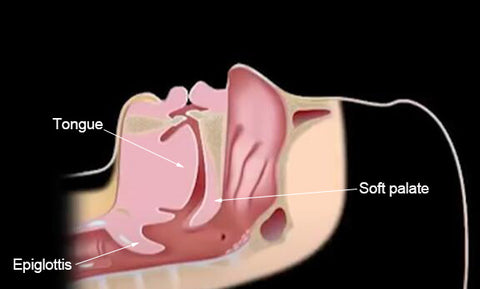
When you lie down, there is a varying degree of tongue drop towards the back of our tongue. If you are a young person then this degree of dropping does not block your airway. If you are obese (large tongue) or elderly (loose tongue tissue) then it tends to block our airway.
Breathing smoothly:
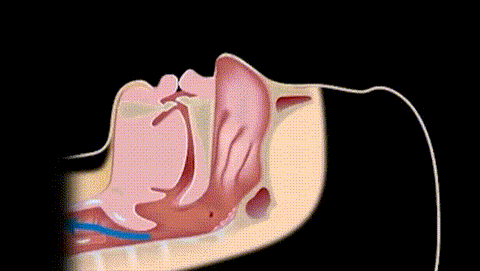
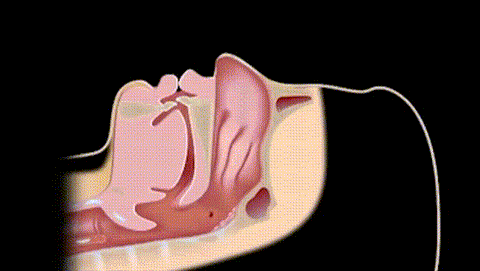
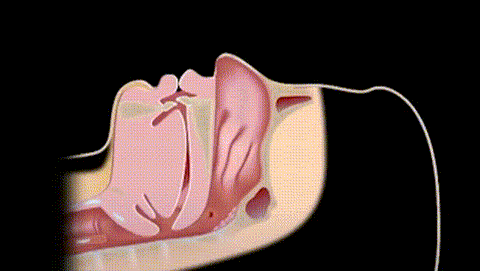
Apnea (asphyxia)
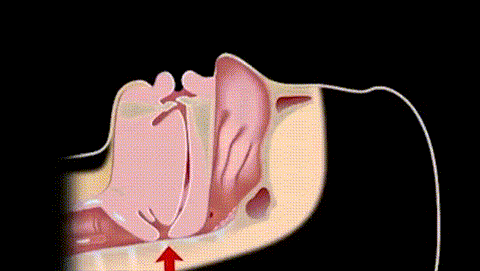
After falling asleep, the snorer's tongue, epiglottis and soft palate become relaxed, and these structures naturally droop, blocking the airway. When breathing, the air hits the soft palate and makes a snoring sound. If these structures sag very badly, then breathing can be aborted.
And when you're awake, these structures are in a tight state and don't collapse, so you don't make snoring noises.
So for some people who snore, when they sleep on their side, their airway will be much less blocked and their snoring will be improved.
This is why some obese patients with snoring or apnea have already taken certain treatments and their doctors still recommend them to lose weight, because it helps to mitigate the airway blockage and has a positive effect on snoring and apnea.
According to the above explanation, we know that obese people, older people are prone to snoring. Despite this, we will also encounter some relatively thin young people also snore, why is this?
#2
Mouth breathing
The habit of using mouth breathing will also make you prone to snoring. Because when you open your mouth to breathe, the soft palate of your tongue will move backwards, making it easy to make snoring sounds.
#3
Upper crossed syndrome can also cause snoring
With the development of society, more and more young people are now put to work, long-term bad posture can also cause us to snore. We can see everywhere, many people have the habit of hunchback.
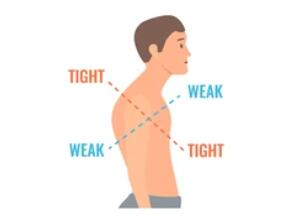
Long-term hunchback posture makes the muscles at the back of the neck and the muscles in front of the chest overly tight, while the muscles at the back become weak and the deep muscles at the front of the neck become weak. And during sleep, the weakness of the deep muscles at the front of the neck will tend to sag and block the airway.
#4
It is normal to snore when you drink alcohol before going to bed or when you are very tired, so don't stress about it. Snoring occurs because of excessive relaxation of throat muscles and other muscles caused by drinking alcohol or exertion.
In addition, the pharyngeal cavity has space-occupying lesions, thus occupying the pharyngeal airway. Enlarged tonsils and other glands, mucus edema caused by hypothyroidism, and nasal diseases that block the airway, such as nasal polyps, sinusitis and deviated nasal septum, may cause snoring.
Conclusion
As mentioned above, the hypertrophy of the structures in our mouth, the relaxation of the tissues and the associated muscle relaxation can block our airway or cause narrowing of the airway, also known as airway collapse. When the airway is narrowed or blocked, we are in a state of "hypoventilation" when we breathe and snoring will occur, and when it is completely blocked, asphyxia will occur.


